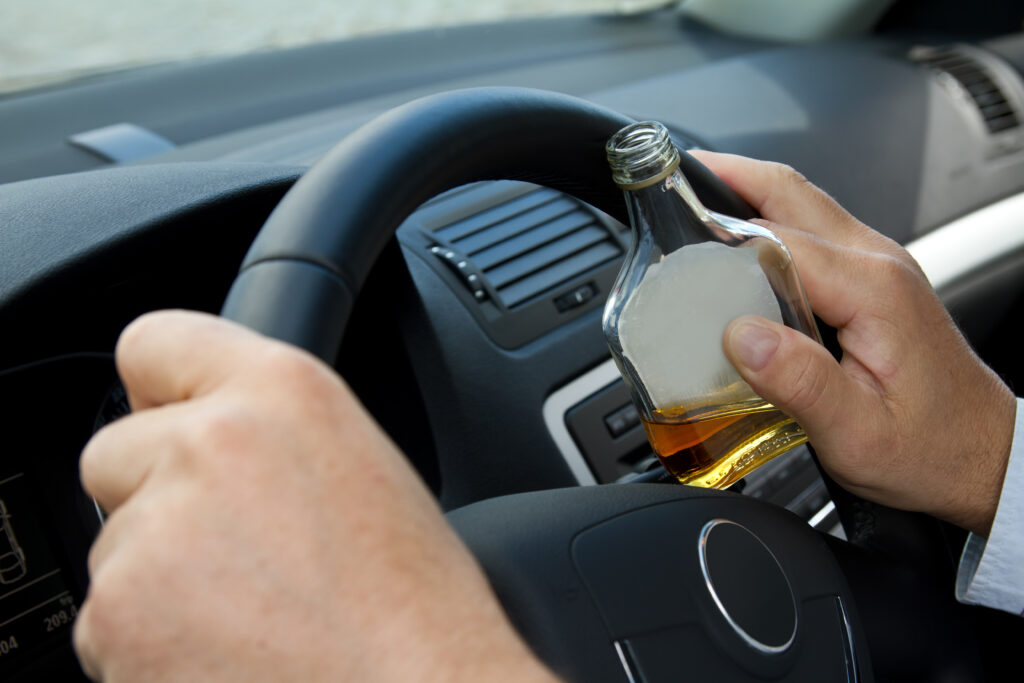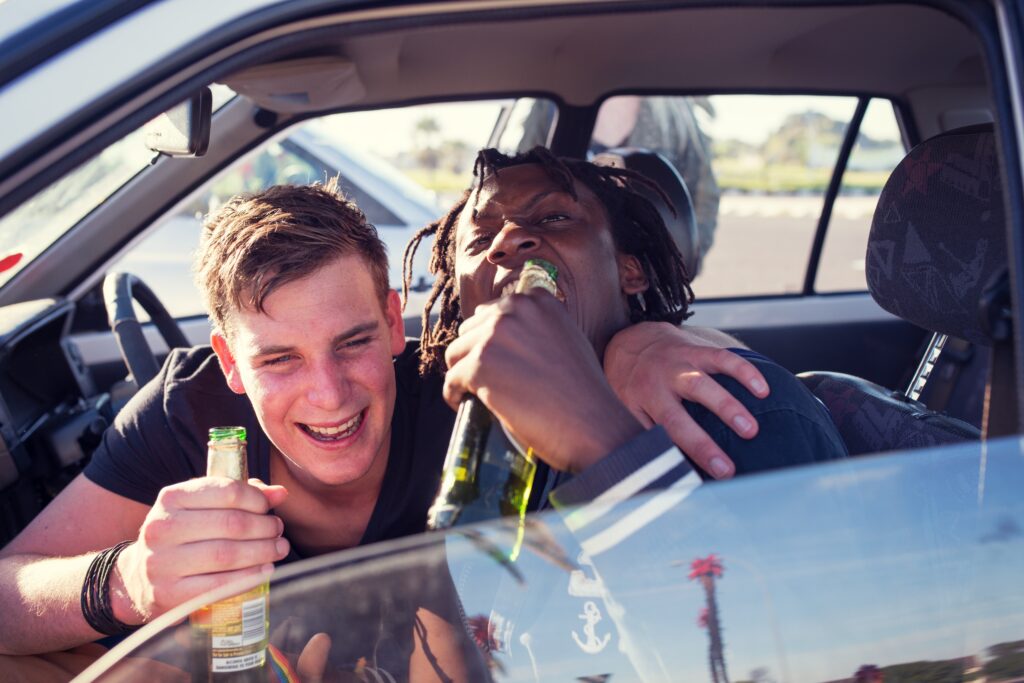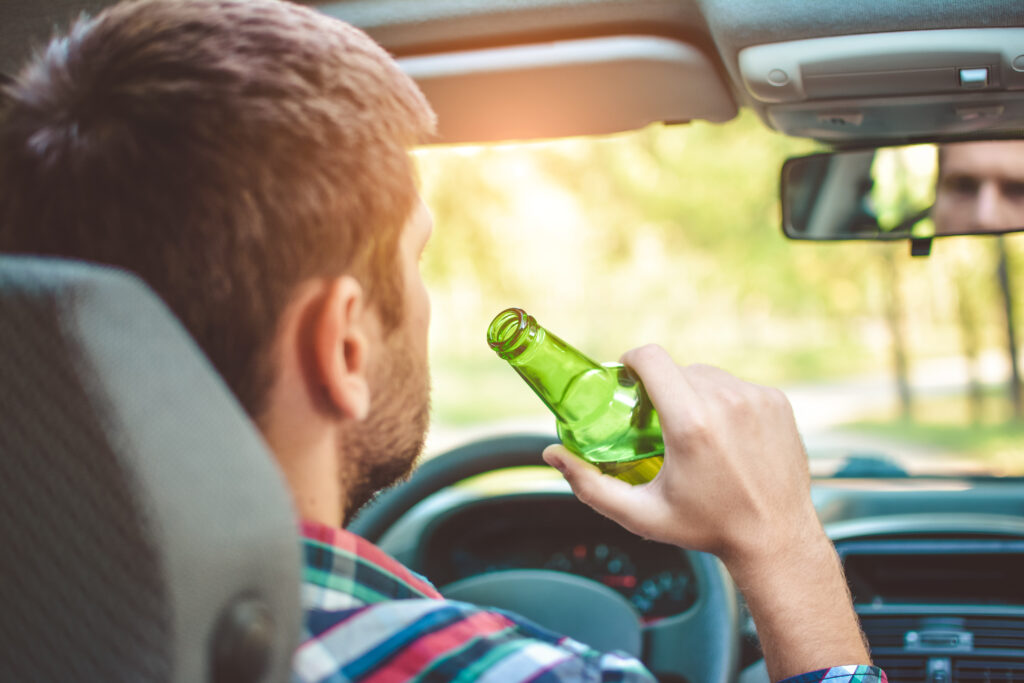Drunk driving accidents involve a breach of both criminal and civil laws. When someone causes a car crash while intoxicated, the law enforcement agency responding to the accident holds jurisdiction over the criminal aspects of the case.

They make arrests, file criminal charges, and pursue convictions. However, you should also note that this criminal process doesn't address the pursuit of compensation for your accident-related injuries under civil law.
If you were recently in a drunk driving accident and suffered injuries, contact a car accident attorney in Vero Beach who can pursue the compensation you deserve.
Schedule A Consultation Today!
How Alcohol Affects Drivers
Alcohol's impact on drivers degrades cognitive and physical functions crucial for safe driving.
Judgment
Consuming alcoholic beverages diminishes cognitive abilities, impairing an individual's capacity for clear thinking, reasoned decision-making, and exercising caution—essential aspects for safe driving.
Poor judgment can result in risky behaviors, such as speeding, making unsafe turns, or neglecting the task of driving altogether.
Concentration
Alcohol hampers a driver's ability to focus on multiple tasks simultaneously, including monitoring speed, assessing weather conditions, and observing other motorists. Concentration is vital for safe driving; any impairment in this area can significantly increase the risk of accidents.
Comprehension
In addition to concentration, drivers must be aware of their surroundings, understand traffic signals and signs, and navigate potentially hazardous driving situations. Intoxicated drivers are more likely to disregard or misinterpret these cues, limiting their ability to respond appropriately and avoid collisions.
Coordination
Alcohol consumption adversely affects both fine and gross motor skills in drivers, resulting in diminished eye-hand-foot coordination. Limited coordination makes it challenging to react quickly and effectively in emergencies, such as sudden obstacles on the road.
Vision and Hearing
Under the influence of alcohol, a person's hearing and eyesight suffer impairment. Peripheral vision is reduced, hindering the ability to judge distances accurately, a crucial aspect in preventing rear-end collisions. Alcohol-induced changes in fluid composition in the inner ear can lead to dizziness, imbalance, and hearing loss.
Reaction Time
Alcohol slows down comprehension, reflexes, and the ability to respond quickly to ever-changing driving conditions. For instance, an intoxicated driver will have a delayed reaction time compared to a sober driver when faced with sudden braking by the vehicle in front.
Drivers Under the Influence of Non-Alcoholic Substances
Impaired driving isn't exclusive to alcohol; it extends to various substances, also posing both criminal charges and civil liabilities.
If a driver is under the influence of non-alcoholic substances, such as over-the-counter medications, prescription drugs, illegal drugs, or marijuana, they may still be held accountable through civil lawsuits and face criminal legal consequences.
In addition to alcohol, drivers can also be impaired by:

- Over-the-counter medications: Drivers taking certain over-the-counter medications may experience drowsiness or other side effects that compromise their ability to drive safely. Even seemingly harmless medications can impair cognitive functions and reaction times.
- Prescription Drugs: Prescription medications, if misused or taken without understanding their impact on driving, can lead to impairment. Drivers taking prescription drugs must consider warnings about drowsiness or impairment associated with prescription medications.
- Illegal Drugs: The use of illegal drugs significantly impairs a driver's cognitive and motor skills, posing a severe risk on the road. Detection and confirmation of illegal substance use may involve collaboration between law enforcement and legal professionals.
- Marijuana: While legalized in certain jurisdictions, marijuana can still impair a driver's ability to operate a vehicle safely. The complexities arise in determining the degree of impairment and establishing a connection between marijuana use and the accident.
If any of these substances impaired the driver responsible for the car accident, tell your drunk driving accident attorney. They play a crucial role in navigating the legalities associated with impaired driving involving non-alcoholic substances.
What Are Dram Shop Laws?
Dram shop laws are regulations that hold establishments, such as bars or restaurants, responsible for injuries or damages caused by individuals who were served alcohol on their premises.
These laws vary by state, but in general, they allow third parties (such as accident victims) to sue alcohol-serving establishments for damages caused by individuals who were visibly intoxicated or minors at the time they were served alcohol.
Key points regarding dram shop laws include:
- Liability of Establishments: Dram shop laws impose liability on establishments that serve alcohol if victims can prove that the establishment's sale of alcohol was a proximate cause of the subsequent injuries or damages.
- Visible Intoxication: Many dram shop laws require that the server knew or should have known that the patron was visibly intoxicated at the time of being served alcohol. This implies a responsibility on the server's part to assess patrons' condition.
- Social Host Liability: Besides commercial establishments, some states extend dram shop liability to social hosts who provide alcohol in social settings. This means that hosts of private parties may also be held liable for injuries caused by guests they have served alcohol.
- Limits on Liability: Dram shop laws may have limitations on liability, such as specific caps on damages or a requirement that the establishment's actions were a substantial factor in causing the harm.
Dram shop laws vary widely by jurisdiction, and not all states have them. Moreover, even in states with dram shop laws, the specifics can differ. Consulting a legal professional familiar with the laws in your particular jurisdiction for accurate and up-to-date information is in your best interests.
Drunk Driving Criminal Charges vs. Civil Liability
If the individual responsible for your accident, who was driving under the influence, is now facing criminal charges, pursuing a civil case is not only viable but often necessary. Understanding that criminal and civil legal processes operate independently is crucial.
While criminal charges hold the offender accountable for violating the law, a civil case allows you to seek compensation for the damages you suffered because of the incident. Even if the driver faces criminal charges, it doesn't automatically translate into financial restitution for your losses. Pursuing a personal injury claim remains a separate and essential course of action.
Keep in mind that the outcome of a criminal case doesn't dictate the results of a civil claim and vice versa. In some instances, individuals may escape criminal charges but still be found liable in civil court for the harm they caused.
Conversely, even if a person is convicted of DUI in criminal court, it doesn't guarantee compensation for your damages in a civil case.

It's important to understand that a criminal conviction doesn't provide direct compensation to you; instead, a civil claim is an avenue through which you can seek restitution for medical expenses, property damage, pain and suffering, and other losses resulting from the accident. Moreover, pursuing a civil case can be particularly beneficial if you are seeking punitive damages, which may apply with a DUI conviction in the criminal case.
Pursuing a civil case remains a distinct and crucial step for obtaining the compensation you deserve despite ongoing criminal proceedings.
Injuries Resulting from Drunk Driving Collisions
Drunk driving accidents can inflict a range of injuries, varying from severe to catastrophic. Even when drivers are seemingly below the legal blood alcohol concentration (BAC) limit, the potential for serious harm is substantial. The injuries commonly associated with drunk driving accidents include the following:
Burns
In some instances, drunk driving accidents lead to vehicles catching fire, resulting in burn injuries for surviving victims. Burns can vary in degree and affect any part of the body, often causing scarring and disfigurement. Treatment may involve plastic surgery and skin grafts and carries the risk of infections, adding complexity to the recovery process.
Broken Bones
The force of a car accident can fracture any bone in the human body. From wrists and hands to arms, shoulders, ribs, necks, backs, pelvises, legs, ankles, feet, and skulls, bones are susceptible to breaking.
Treatment ranges from minimal care with casts to extensive interventions, including multiple surgeries, hospitalizations, narcotic pain medications, and long-term physical therapy.
Head Injuries
With limited protection, the head is highly vulnerable in motor vehicle accidents. Facial gashes and lacerations are common, and victims may suffer from fractured skulls, concussions, or severe traumatic brain injuries (TBIs).
Survivors of TBIs may experience lasting effects such as personality changes, mood disorders, seizure disorders, and long-term care needs.
Spinal Cord Injuries (SCI)
While the spinal cord has protection from discs and vertebrae, drunk driving accidents can cause damage, bruising, or severing of the spinal cord. Such injuries result in temporary or permanent paralysis of limbs and bodily functions below the injury site, necessitating therapy and potentially lifelong medical support.
Soft Tissue Injuries
Injuries to soft tissues, like whiplash, may seem less severe but can cause significant pain and require medical attention for recovery. Some soft tissue injuries take longer to heal than broken bones.
Often, insurance companies will put up a fight about paying for such injuries because they seem so harmless. But in reality, those who suffer them know how painful and frustrating they can be.
Amputations
Severe drunk driving accidents can lead to accidental or necessary amputations. Crush injuries or severe trauma to limbs may leave medical professionals with no choice but to amputate. This life-altering consequence adds substantial challenges to the victim's recovery.
Internal Injuries
Internal injuries involving organs like the spleen, liver, or lungs can occur due to bruising and bleeding. Sometimes, the severity of internal bleeding can be fatal, underscoring the urgency of immediate medical attention for diagnosis and treatment.
Post-Traumatic Stress Disorder (PTSD)
In addition to physical injuries, victims may suffer from invisible mental and emotional trauma, with PTSD being a prevalent outcome. PTSD can cause sleep disturbances, concentration difficulties, relationship challenges, depression, and anxiety, often requiring cognitive therapy and medications for recovery.
Regardless of the nature of the injuries sustained in a drunk driving accident, seeking prompt medical attention is crucial. Early intervention improves outcomes for many injuries, and some life-threatening conditions may not immediately exhibit symptoms, emphasizing the importance of a timely medical evaluation. Additionally, having a medical record that connects your injuries with the drunk driving accident will help increase your claim's chance of success.
Damages in Drunk Driving Accidents
Determining the compensation you may be entitled to after sustaining injuries in a drunk driving accident involves various factors. Your potential recoverable damages can include economic and non-economic losses.
Economic Damages:
- Medical Expenses: Coverage for current and future medical costs, including surgeries, rehabilitation, and prescription medications.
- Lost Wages and Income: Compensation for time off work during recovery and potential future income losses.
- Property Damage: Reimbursement for the damage to your vehicle or other property.
- Future Medical Costs: Anticipation of medical expenses for ongoing or future treatment.
- Future Lost Wages: Compensation for potential income losses due to long-term effects of the injuries.
Non-Economic Losses include:
- Pain and Suffering
- Loss of Consortium
- Loss of Enjoyment of Life
- Emotional Distress
- Humiliation
- Mental Anguish
- Wrongful Death
- Punitive Damages
Punitive Damages
In cases that go to court, victims of drunk driving accidents may often seek punitive damages. Unlike compensatory damages, punitive damages do not compensate for specific injuries or losses.
Instead, they punish the at-fault party for gross negligence or intentional misconduct and deter similar behavior in the future. Only courts have the authority to award punitive damages.
By consulting with a drunk driving accident attorney promptly, you safeguard your legal rights, comply with statutory timelines, navigate the complexities of dealing with insurance companies, and ensure the preservation of vital evidence crucial to securing the compensation your claim genuinely deserves.

Injured in a Drunk Driving Accident? Contact a Car Accident Attorney Today
If you recently suffered injuries in a drunk driving accident, don't hesitate to reach out to a seasoned car accident attorney. An attorney can investigate the accident, hold the liable party or parties accountable for their actions, and maximize your compensation.
Never assume you will automatically receive compensation if a driver is convicted of drunk driving. Instead, take action to protect your rights and future with representation by a skilled car accident lawyer.
